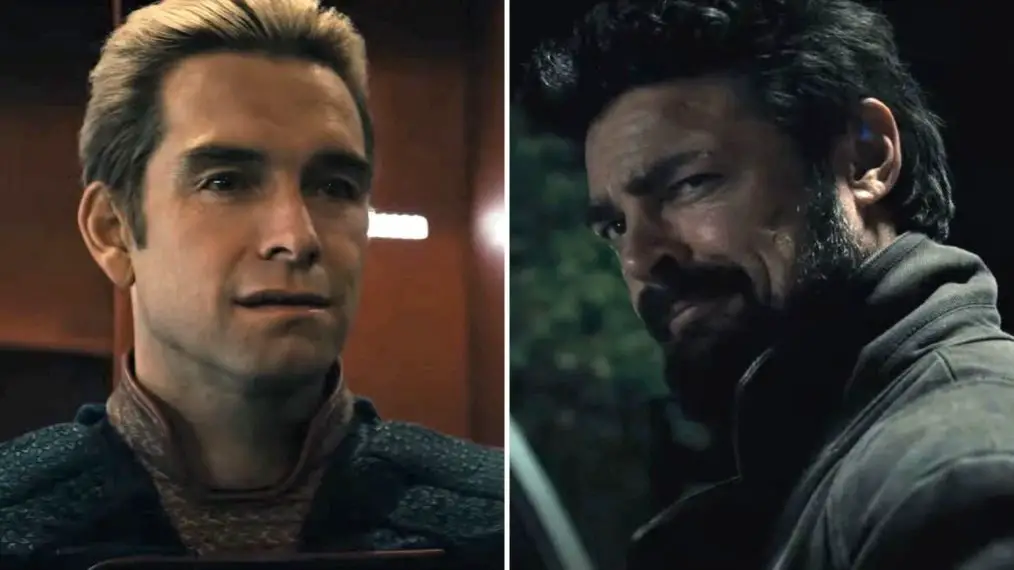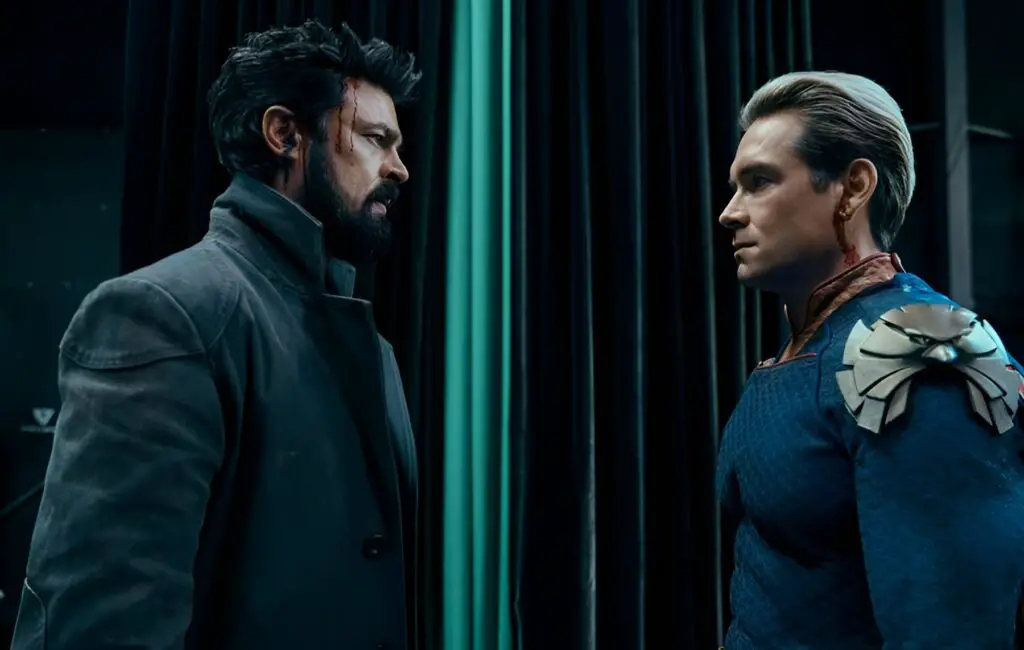In the annals of television’s most gripping rivalries, few can parallel the visceral enmity between Billy Butcher and Homelander in Amazon Prime’s “The Boys.” As we edge closer to the release of Season 4, anticipation surges with the promise of a feud reaching new zeniths. Season 3 left us teetering on the brink of narrative precipices – Butcher’s dalliance with Compound V and Homelander’s chilling public execution, actions that signify both characters’ descent into domains of extremism and vigilantism.
The forthcoming season, buoyed by the seismic events of the “Gen V” spinoff, pledges to delve deeper into this maelstrom of vengeance and vendetta. Season 4 is not merely another chapter; it is the battleground where Butcher’s relentless crusade against Homelander and his ilk will likely escalate beyond the pale of mere animosity. It portends to be a cataclysmic showdown where moral ambivalence blurs the lines between hero and villain, and where the very soul of humanity might well hang in the balance.
Butcher, a man forged in the crucible of pain and loss, emerges as the necessary darkness, a role he accepts with a grim resolve to end Homelander’s reign of terror. His methods, unorthodox and often reprehensible, mirror the lengths to which he’s willing to go to achieve his ends. Yet, in Homelander, Butcher faces a nemesis who is his equal and opposite in every measure – a superpowered being whose facade of patriotism and benevolence crumbles to reveal a narcissistic and capricious god-complex.
As Homelander’s grip on sanity wanes and his belief in his own supremacy calcifies, Season 4’s narrative arc hints at a world teetering on the edge of a superhuman coup. A world where the disdain for the ‘inferior’ humans festers, and a world where Butcher might represent the final stand against a supe-led dystopia. This is not just Butcher’s fight; it is humanity’s resistance against a backdrop of superhuman tyranny.
Season 4 is poised to unspool this complex tapestry of power, responsibility, and the cost of vengeance. As both Butcher and Homelander ready themselves for the inevitable clash, the stage is set for a confrontation that will undoubtedly redefine the series’ legacy. It is a narrative imbued with irony and tragedy – for in their war, both Butcher and Homelander reflect the very worst of what they seek to destroy.
In their quest to annihilate each other, we, the audience, are offered a mirror to our own world – a world rife with conflict and power struggles. “The Boys” Season 4 promises to be a reflection of our times, a cautionary tale that resonates with the zeitgeist of our era. As Butcher and Homelander lock horns, we brace ourselves for a narrative that is as unpredictable as it is inevitable – a story of two men, two ideologies, and one inexorable clash that could either save or doom an entire world.
A Confrontation for the Ages: The Perils of Power in The Boys Season 4

As the intricate dance of dominance and defiance continues, “The Boys” Season 4 is anticipated to intricately explore the repercussions of unchecked power. The narrative threads from the shocking conclusion of “Gen V” weave into the fabric of the upcoming season, auguring an epic standoff. Here, Butcher, emboldened by his brief stint with superpowers, stands on precarious ground, his moral compass shattered in the quest to stop Homelander, whose descent into madness grows increasingly perilous.
The season promises to interrogate the very nature of power – its corrupting influence, its ability to alienate, and its capacity to create monsters out of men. Homelander, once the paragon of American virtue, now embodies the very antithesis of the values he was created to espouse. His public execution, a terrifying display of raw power, ignites his base instincts, heralding a reign of terror that Butcher is desperate to end.
Within this context, Season 4 will likely dissect the dynamics of heroism and villainy, questioning the very definitions we ascribe to these terms. Butcher, with his unyielding hatred for supes, and Homelander, with his godlike ego, are set on a collision course that could irrevocably change the world of “The Boys.” It is a narrative punctuated by moral ambiguity, where the ends seek to justify the means, and where every action has a profound ripple effect.
This season is more than a mere continuation; it is a narrative imbued with societal reflections, a poignant exploration of the dichotomy between power and responsibility. As Homelander’s actions galvanize him as the ultimate antagonist, Butcher’s tactics grow increasingly extreme. The stakes are higher than ever, and the battle lines are drawn not just in the sand, but in the very souls of these characters.


